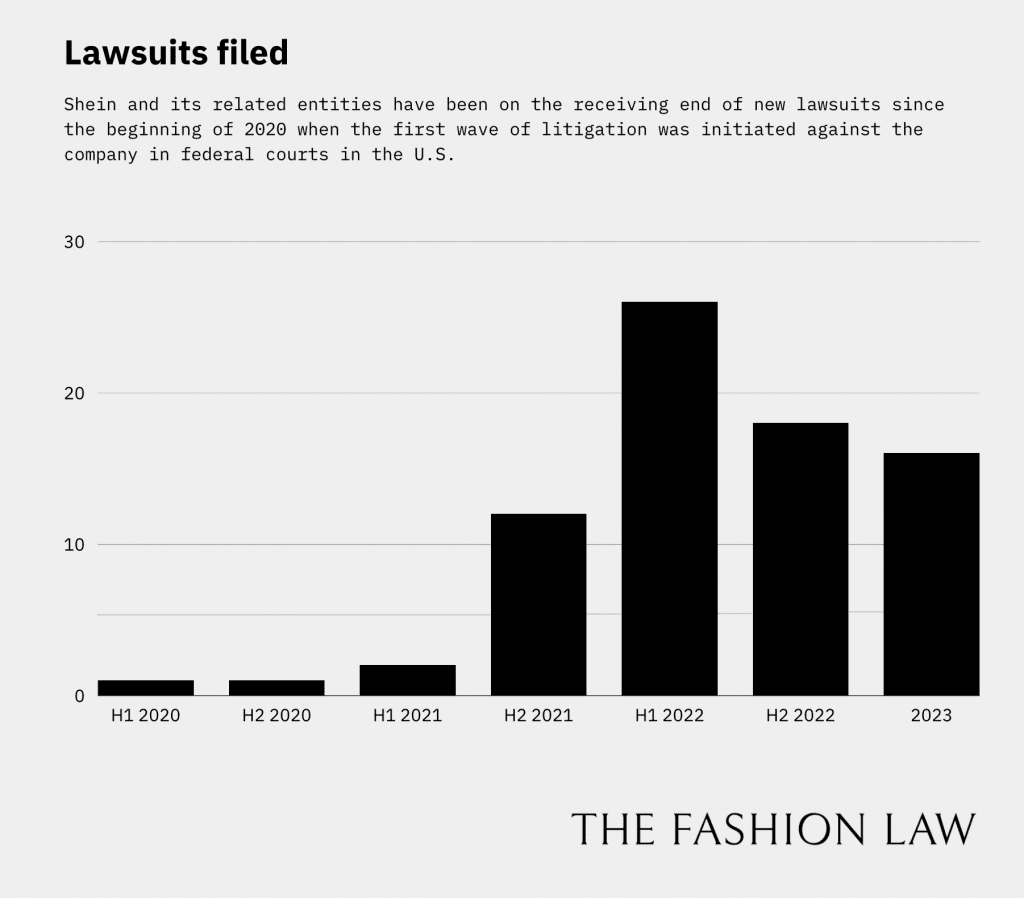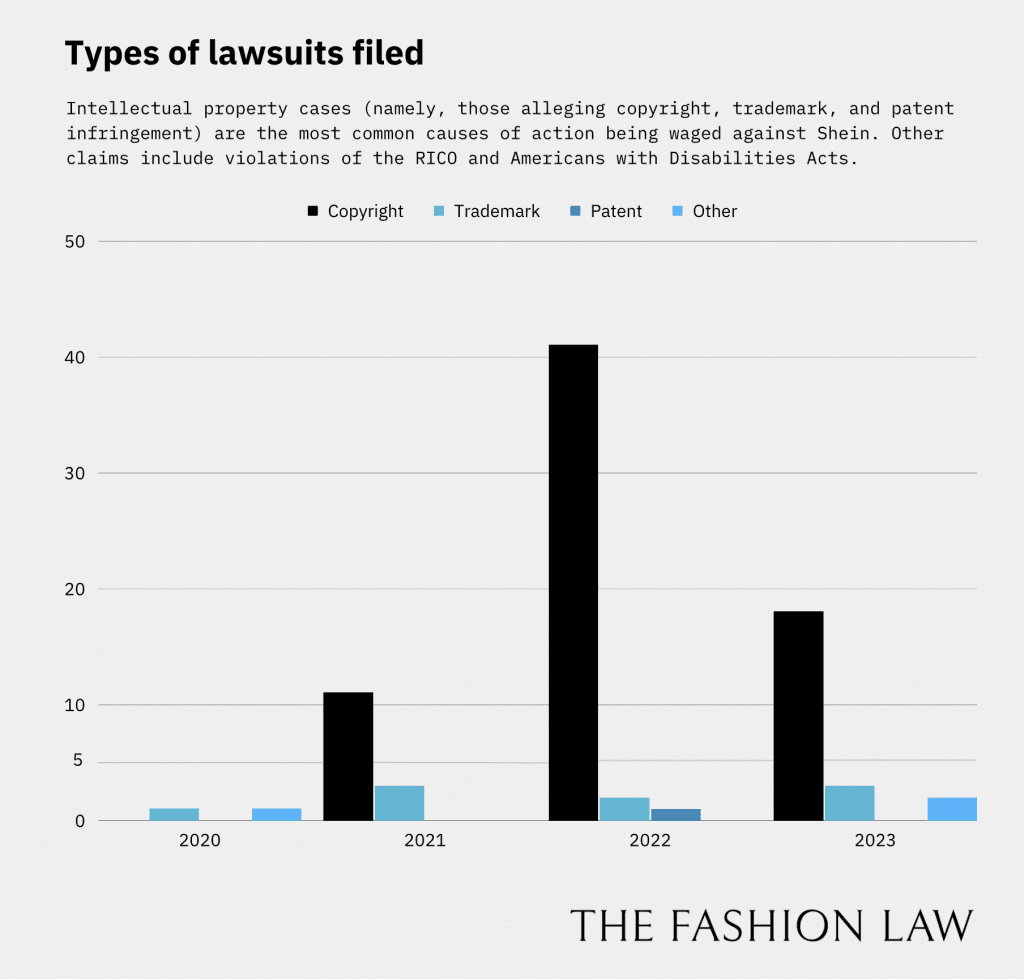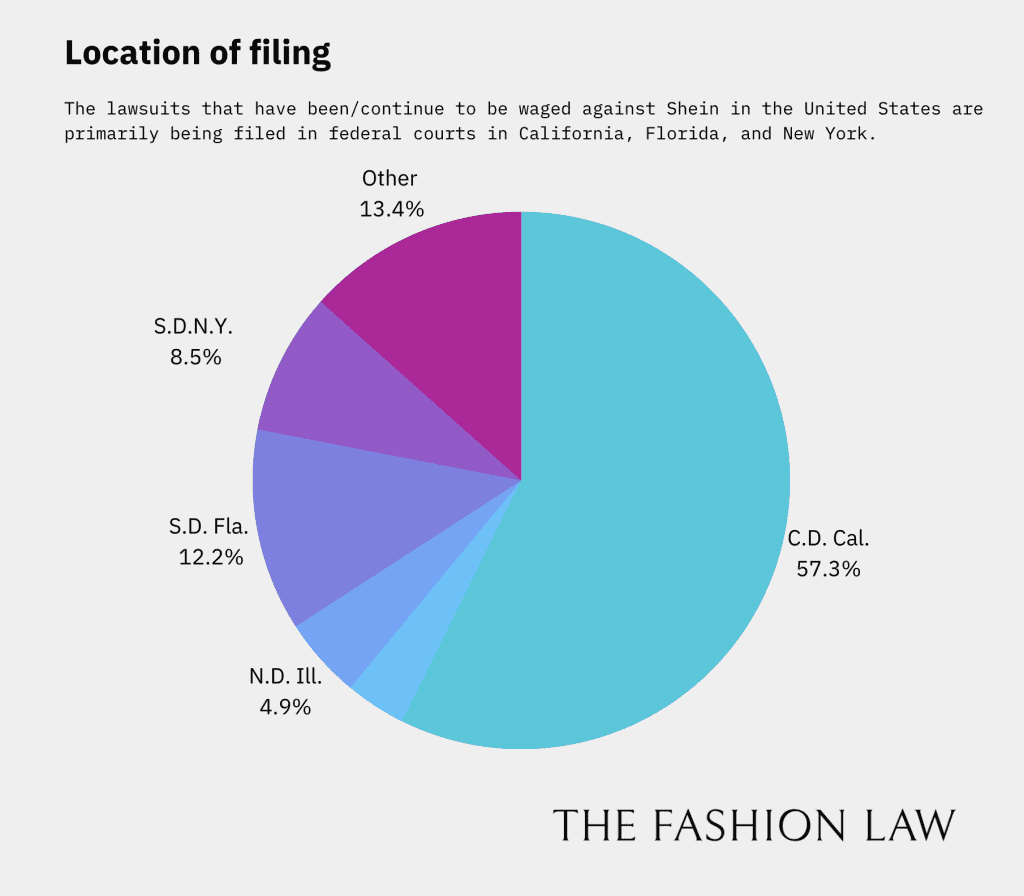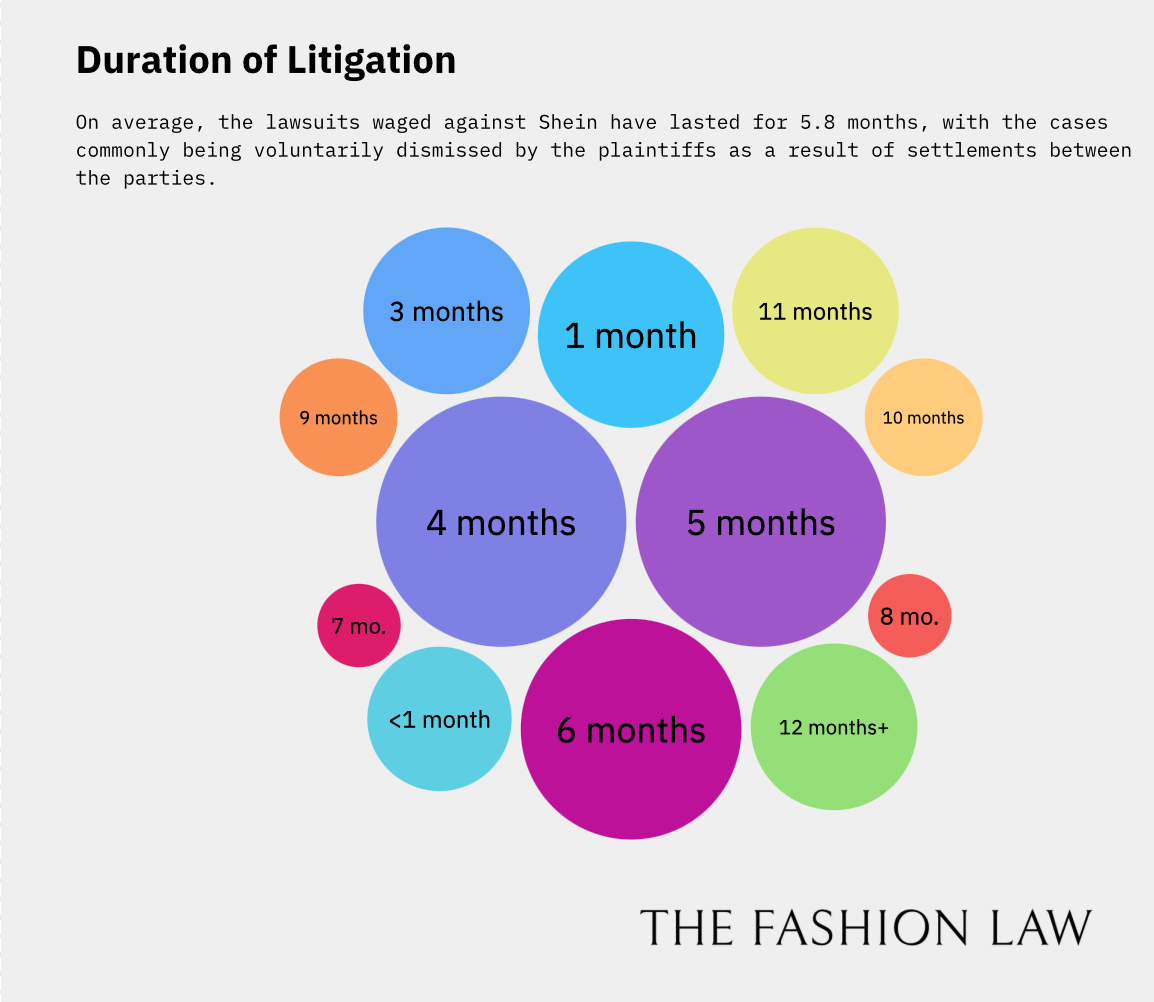Deep Dives
If there was a void in the market for fast fashion, it was not glaringly obvious until Shein came along. For decades, multi-national retail titans like Zara and H&M (and then a newer batch of digitally native companies like Missguided, Boohoo, and Fashion Nova) held the crown when it came to providing consumers with inherently trendy and remarkably-low-priced apparel and accessories. These revolutionary companies took over the market, generating billions of dollars in annual revenue thanks to a model that saw them regularly turning out hundreds of new products in their brick-and-mortar stores and/or on their e-commerce sites, tempting consumers with the ability to constantly appear on-trend without having to break the bank. Then Shein started inching into consumers’ consciousness.
Founded in Nanjing, China in October 2008 by entrepreneur Chris Xu, Shein first started catering to American consumers in 2014 when its shopping app became available in Apple’s app store. While its rise to the top of the U.S. retail totem pole was initially a quiet one, over the past few years, Shein’s success has been almost impossible to ignore. After overtaking Amazon as the No.1 app in the shopping categories of iOS and Android in the U.S. in May 2021, the company subsequently nabbed a reported valuation of $100 billion following a funding round that included private-equity firm General Atlantic along with existing investors Tiger Global Management and Sequoia Capital China. (That valuation has since slipped to $64 billion, CNBC reported in March 2023.)
Privately held Shein is estimated to have generated $23 billion in revenue in 2022, up from a reported $10 billion in revenue in 2020. (For some perspective, Inditex, the Spanish retailer that owns Zara, Pull & Bear, Massimo Dutti, Bershka, Stradivarius, Oysho, and Zara Home, reported €32.6 billion in FY2022 revenue for its entire group.) Sources said this spring that Shein is angling to boost revenue by 40 percent this year.
Winning over millennials and Gen-Z shoppers with trendy $5 top and $20 jeans, Shein is proof that a clothing company from China – which leverages the nation’s “well-developed garment-manufacturing industry and efficient logistics system to sell online and ship to customers around the world at low cost,” per the WSJ – can build a brand that is in-demand in the West. At the same time, Shein is facing mounting challenges. Its eye-watering growth has put it under the microscope of regulators, lawmakers, and consumer plaintiffs, alike, and in turn, the company is providing a real-time demonstration of the tribulations that come with an effort to build a China-founded retail behemoth. (In 2022, Shein moved its global headquarters from China to Singapore in what has been viewed as an endeavor aimed at boosting its reputation and also maintains a domestic headquarters in Los Angeles.)
Plagued by controversy amid reports that it will list on a U.S. stock exchange later this year, regulators are taking issue with the innerworkings of the allegedly-shadowy Shein empire – from accusations that it is exploiting a U.S. trade loophole in order to avoid paying import duties to recurring claims that the company’s supply chain is heavily tied to the Xinjiang region of China, where human rights abuses – including forced labor – against the Uyghur minority have been widely documented.
Case in point: In an August 24 letter, attorneys general for sixteen states alerted U.S. Securities and Exchange Commission (“SEC”) chairman Gary Gensler that Shein’s business has been built on “nefarious business practices,” including “forced labor, human rights violations … and the peddling of clothing made with potentially hazardous materials.” The AGs’ letter followed from a call by two dozen U.S. representatives this spring, which called on the SEC to halt Shein’s reported initial public offering until it verifies that it does not use forced labor.
A spokesperson for Shein told TFL in response to such criticism, “SHEIN’s policy is to comply with the trade laws of the countries in which we operate. We have zero tolerance for forced labor, and no contract manufacturers in the Xinjiang region. We will continue to engage with U.S. federal and state officials to answer their questions.”
In addition to citing concerns over labor and human rights, the states’ attorneys asserted in their letter to Gensler that Shein is “stealing other designers’ work” and relying on a “network of putatively independent suppliers [that] allows it to immediately create or exploit trends – often blurring the lines of intellectual property and copyright.” Not limited to allegations from states’ counsels, infringement claims have been lodged against Shein – and its various entities, including Shein Distribution Corp., Shein US Services, Shein Fashion Group, Inc., Zoetop Business Co., and Roadget Business PTE, among others – in the steady stream of lawsuits that have been filed in U.S. courts in recent years.
Against that background, we took a dive into the state of Shein’s legal dealings, looking exclusively at the complaints waged against it and its related entities (collectively, “Shein”) in federal courts in the U.S. At a high level, we found the following …
> Shein has been on the receiving end of new lawsuits since the beginning of 2020 when the first wave of litigation was initiated against the company in federal courts in the U.S. By our count, Shein is currently facing upwards of 30 ongoing cases.

> The bulk of such litigation waged against Shein comes in the form of intellectual property cases, with plaintiffs primarily alleging that Shein engaged in copyright, trademark, and/or patent infringement. On the topic of infringement, Shein’s spokesperson said that the company “takes all claims of infringement seriously,” and that “it is not our intent to infringe anyone’s valid intellectual property and it is not our business model to do so.”

In a small number of cases, different and/or additional causes of actions have been alleged, including …
(1) The Americans with Disabilities Act. Plaintiff Mary Conner filed an ADA-focused complaint against Shein over the accessibility of its e-commerce site in June 2020. Conner alleged that Shein failed to “design, construct, maintain, and operate their website to be fully accessible to and independently usable by [her] and other blind or visually impaired persons.” She voluntarily dismissed the suit in July 2020, a month after it was filed;
(2) The Sherman Act, the Clayton Act, as well as the Massachusetts Consumer Protection Law. These claims stem from currently pending case filed against Shein in July by rival Chinese retailer/e-commerce company Temu. (For some additional context, Shein sued Temu in March for allegedly infringing Shein’s “exclusive and valuable trademark and copyright rights,” and attempting to boost its own growth in the American market by “impersonating [the] SHEIN brand on social media, trading off of the well-known SHEIN trademarks, and using copyrighted images owned by [Shein] as part of [its own] product listings.”); and
(3) The Racketeer Influenced and Corrupt Organizations Act. A RICO charge was waged against Shein by way of the lawsuit that independent designers Krista Perry, Larissa Martinez, and Jay Baron filed against it in July, accusing the company of engaging in a copyright and trademark infringement scheme that also amounts to racketeering due to the company’s allegedly “confusing” and “decentralized” corporate structure.
International Infringement Claims – Not included in our domestic litigation data are cases that have been waged against Shein outside of the U.S., such as a case pitting H&M against Shein in Hong Kong, with H&M alleging that Shein has infringed the copyright-protected elements of some of its offerings, including knitwear and swimwear. The case got its start in July 2021 when Stockholm-based H&M named Shein Group Ltd. and Zoetop Business Co. as defendants in an infringement complaint, in connection with which it is seeking unspecified damages and injunctive relief to bar the Shein companies from continuing to “infringe on its copyrights.
In furtherance of its copyright infringement claims, H&M has argued that “the striking resemblance” between its products and those offered up by Shein serves as evidence that the latter’s goods “must have been copied” from H&M. Moreover, counsel for H&M pointed to the “sheer scale” of Shein’s “unauthorized reproduction” of “substantial parts” of its copyright-protected works.
> The lawsuits that have been/continue to be waged against Shein in the United States are primarily being filed in federal courts in California, Florida, and New York.

> Among some of the most well-known plaintiffs to wage infringement suits against Shein are Nirvana’s holding company, Dr. Martens owner Airwair International, Dolls Kill, Chrome Hearts, eyewear-maker Oakley, Ralph Lauren’s PRL USA Holdings, Stussy, and jewelry brand Alison Lou.
A Note on Data Privacy – Not included in the litigation-specific data is a since-settled investigation by New York State Attorney General Letitia James, which found that in the wake of a cyberattack (on or about July 18, 2018, Zoetop’s payment processor alerted Zoetop that the retailer’s systems appeared to have been compromised), Zoetop only contacted “a fraction” of the 39 million compromised accounts, and “for the vast majority of the users impacted, the firm failed to even alert them that their login credentials had been stolen.” The parties settled the matter, with Shein paying a $1.9 million sum and signing off on an agreement with the state, which AG James said “should send a clear warning to companies that they must strengthen their digital security measures and be transparent with consumers, anything less will not be tolerated.”
In the wake of the settlement, Shein said in a statement, “We have fully cooperated with the New York Attorney General and are pleased to have resolved this matter. Protecting our customers’ data and maintaining their trust is a top priority, especially with ongoing cyber threats posed to businesses around the world. Since the data breach, which occurred in 2018, we have taken significant steps to further strengthen our cybersecurity posture and we remain vigilant.”
> On average, the lawsuits waged against Shein last for roughly 5.8 months. Save for a number of outliers, the cases are commonly being voluntarily dismissed by the plaintiffs as a result of settlements between the parties.

Looking Forward: Shein is hardly immune to rising legal issues that are facing retailers operating in the U.S. (and beyond). Among some of the key concerns from a legal standpoint for companies are coming by way of the continued filing of lawsuits that center on pricing practices (Hot Topic, for example, is one the latest retailers to be named in a deceptive pricing complaint) and their approach to product reviews. (On the latter front, the FTC just settled a matter that it waged against footwear company Hey Dude for allegedly suppressing negative customers reviews on its website.) At the same time, data privacy continues to be a critical issue for retailers, including in connection with the chatbots that they use on their websites (more about that here) and the biometric data that they are allegedly collecting in connection with virtual try-on tools, as well as data breaches like the one that Forever 21 recently disclosed.
Moreover, there is the undeniable wave of false advertising lawsuits that are plaguing companies as they face growing scrutiny over their sustainability and ESG-focused advertising. And relatedly, supply chain-centric issues are also proving to be thorny ones for retailers, including those with strong ties to China, due to evolving geopolitical issues, risks of forced labor, etc. And finally, lawmakers’ attention to – and attempts to remedy via new legislation – loopholes in the Tariff Act of 1930 that enables foreign companies exploit to sidestep duties and fees.
These issues – and others – could be relevant for Shein, as it continues to be the focus of attention from regulators and consumer plaintiffs.